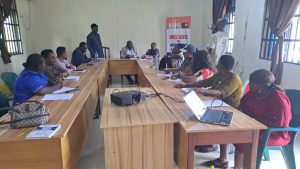Place your adverts here on InfoDig @ low rates; banner ads, sponsored links and guest articles etc. Contact us
The Cross River State Family Planning Advocacy and Technical Working Group has sued for adequate funding to enhance service delivery and procurement of commodities.
READ ALSO: Family planning: Expert urges media professionals on intensive campaign
During its third quarter meeting held in Calabar, the capital of Cross River State, southern Nigeria, the chairman of the group, Dr. Bassey Ibor stressed the need for members to cultivate the support of important stakeholders in the state.
Dr. Ibor, who commended the group for adherence to the action plan, which included advocacy visits on prominent stakeholders in healthcare delivery, urged the committee not to relent in the resolve to achieve the needed success.
“I really commend this group for taking time to fulfill the action plan by paying advocacy visits to the Commissioner for Health, Dr. Egbe Ayuk and others. There is need to cultivate the support of the legislature and other top government officials to raise funds for the commodities. Other programmes also were successfully executed and I commend you for giving us updates on the responses from the communities on the acceptance of family planning commodities. It is good to share experiences from the field to enable us assess the reaction of people to contraceptives,” he said.

Similarly, the secretary of the committee, Mrs. Lucy Bassey, who is one of the newly inducted permanent secretaries, urged the state government to prioritize funding for the procurement of essential family planning commodities to make contraceptives available in all primary healthcare facilities.
According to her, “a shortage of family planning commodities has left many health centers in Cross River State unable to meet the increasing demand for reproductive health services. This situation undermines ongoing efforts to promote family planning and reduce maternal and child mortality in the state.”
Bassey further noted that while the state has made significant progress in raising awareness about family planning, the lack of commodities could reverse the gains.
In separate remarks, members of the committee called on the Nigerian and Cross River State governments to allocate adequate funds for the procurement of contraceptives.
They commended development partners for interventions to support the initiatives aimed at increasing access to family planning commodities, noting that increased government support would significantly improve health outcomes for women and families.















 English (US) ·
English (US) ·